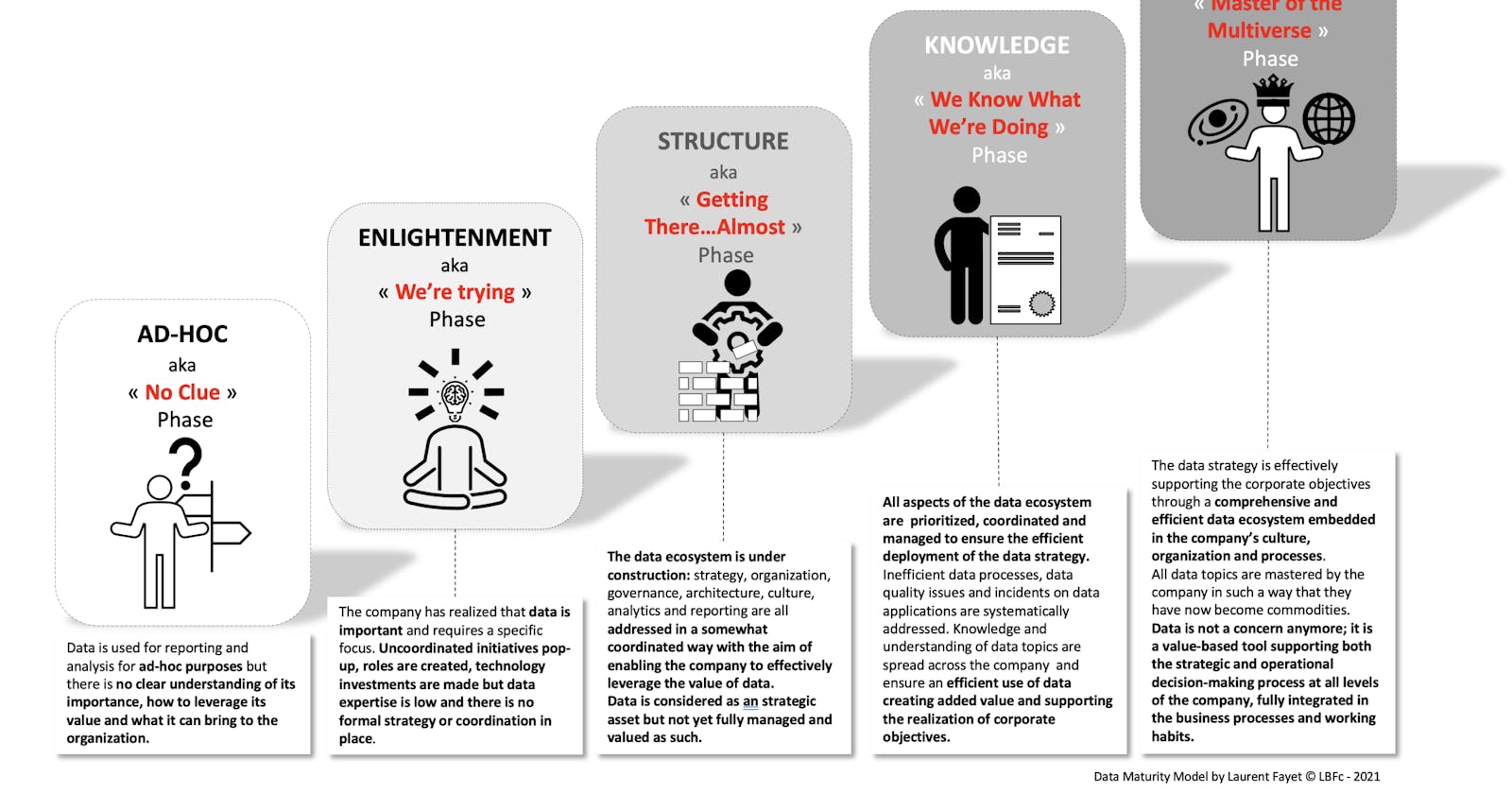Mastering the basics: Data Maturity and the Data Engineer
Navigating the Path to Data Success
Introduction:
Welcome back to our blog series on data engineering! In our previous edition, we explored the fundamental role of data engineers and their contribution to an organization's data infrastructure. Today, we delve deeper into the concept of data maturity and its profound impact on a data engineer's responsibilities and career progression. Join me as we embark on an exciting journey through the stages of data maturity and discover how data engineers navigate this path to success.
Understanding Data Maturity:
Data maturity refers to the progression of an organization's data utilization, capabilities, and integration. It is not limited to a company's age or revenue; even a budding startup can possess greater data maturity than an established corporation. The key lies in how effectively data is leveraged as a competitive advantage.
Simplifying Data Maturity:
While various data maturity models exist, I will introduce a simplified data maturity model, consisting of three stages: starting with data, scaling with data, and leading with data. Each stage represents a different level of data utilization and capabilities within an organization. Let's explore each stage in detail.

Stage 1: Starting with Data:
In the initial stage, organizations are at the early phases of data maturity. Goals may be loosely defined, and data architecture and infrastructure are in the early planning and development stages. Adoption and utilization of data are limited, and the data team is small, often wearing multiple hats. At this stage, data engineers play a pivotal role as generalists, focusing on moving fast, gaining traction, and adding value.
To succeed in this stage, data engineers should:
- Obtain buy-in from key stakeholders to support data initiatives.
- Define the appropriate data architecture aligned with business goals.
- Identify and audit data that supports key initiatives.
- Build a solid data foundation for future data analysts and scientists.
While quick wins are tempting, it's important to balance immediate results with a long-term data strategy to avoid technical debt.
Stage 2: Scaling with Data:
In the scaling stage, organizations move away from ad hoc data requests and establish formal data practices. Data engineering roles evolve from generalists to specialists, and the focus shifts to creating scalable and robust data architectures. DevOps and DataOps practices are adopted to enhance collaboration and streamline workflows.
To scale effectively with data, data engineers should:
- Establish formal data practices for consistent data management.
- Design and implement scalable data architectures.
- Adopt DevOps and DataOps practices.
- Build systems that support machine learning capabilities.
- Leverage off-the-shelf solutions and customize when necessary for a competitive advantage.
Technology decisions should prioritize value delivery rather than blindly following trends.
Stage 3: Leading with Data
At the leading stage, organizations become truly data-driven. Automated pipelines and systems enable self-service analytics and machine learning across the organization. New data sources are seamlessly integrated, and tangible value is derived. Data engineering roles continue to specialize, focusing on leveraging data as a competitive advantage.
In this stage, data engineers should:
- Create automation for seamless introduction and usage of new data.
- Build custom tools and systems that leverage data.
- Focus on data management, governance, and DataOps.
- Deploy tools to expose and disseminate data throughout the organization.
- Foster collaboration with software engineers, ML engineers, and analysts.
However, complacency and unnecessary technological distractions should be avoided to maintain progress and innovation.
Conclusion:
Understanding data maturity is essential for data engineers on their path to success. By embracing the stages of data maturity and aligning their efforts with organizational goals, data engineers can play a pivotal role in driving data-driven decision-making, fostering innovation, and achieving a competitive edge. Join us in our next edition as we explore the evolving landscape of data engineering technologies. Stay tuned for more exciting insights!
Remember, the journey to data maturity is an ongoing process, and data engineers are the catalysts for unlocking the full potential of data within organizations.
